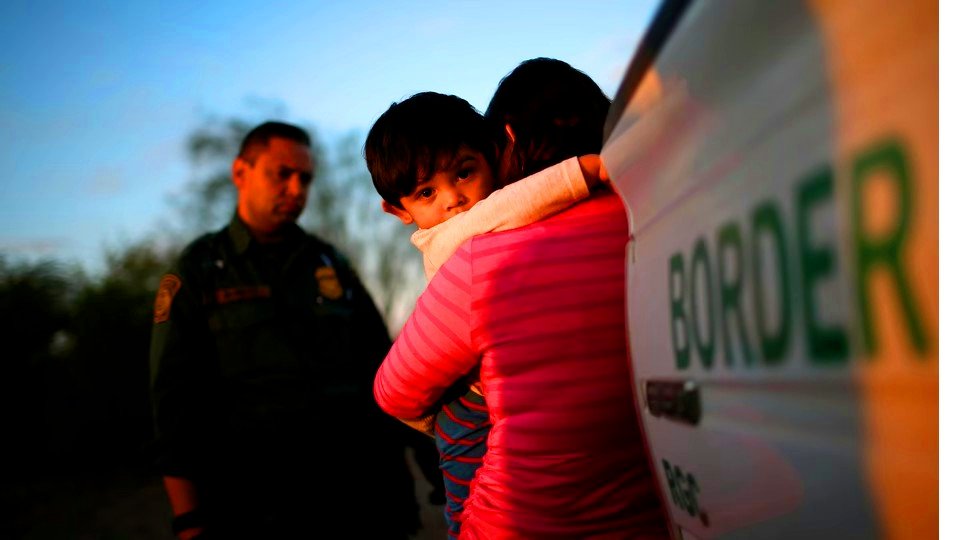Breaking Vows: The Reality of Divorce

Marriage is often envisioned as a lifelong commitment, a sacred vow exchanged between partners promising to love and cherish each other until death does its part. However, the harsh reality is that not all marriages stand the test of time. In today’s fast-paced and ever-evolving society, divorce has become an increasingly common phenomenon, challenging the traditional notion of marital permanence.
“Breaking Vows: The Reality of Divorce” sheds light on the multifaceted nature of divorce, exploring its causes, legal implications, emotional toll, financial consequences, societal perceptions, and avenues for recovery. By delving into the complexities of divorce, this comprehensive examination aims to provide insight, guidance, and support to individuals and families navigating the challenging terrain of marital dissolution.
Causes of Divorce
Financial Strains
Financial difficulties can strain even the strongest of marriages. Disagreements over money management, budgeting, and financial priorities can escalate into more significant conflicts, eroding trust and intimacy between spouses. Economic instability, unemployment, and excessive debt can exacerbate financial stressors, further destabilizing marital relationships.
Infidelity and Trust Issues
Infidelity remains one of the most common reasons cited for divorce. The betrayal of trust that accompanies infidelity can irreparably damage the foundation of a marriage, leaving the betrayed spouse grappling with feelings of anger, betrayal, and inadequacy. Infidelity can also signify underlying issues within the relationship, such as emotional neglect or dissatisfaction.
Communication Breakdown
Effective communication is the cornerstone of a healthy marriage. When communication breaks down, misunderstandings proliferate, grievances go unaddressed, and resentments fester. Poor communication can create conflict and withdrawal, driving a wedge between spouses and inhibiting meaningful connection and resolution.
Lack of Compatibility
Despite initial feelings of love and compatibility, some couples discover fundamental differences that render their relationship unsustainable. Divergent values, incompatible lifestyles, and clashing personalities can erode the emotional bond between partners, leading to disillusionment and estrangement.
Cultural and Societal Factors
Cultural norms and societal expectations can pressure couples to conform to traditional marital roles and norms. In some cultures, divorce may be stigmatized or viewed as a failure, discouraging individuals from seeking separation even in the face of irreconcilable differences. Fear of social ostracism, familial disapproval, or religious condemnation can compel individuals to remain in unhappy marriages, perpetuating dissatisfaction and resentment.
Legal Aspects of Divorce
Divorce involves navigating a complex legal landscape, with myriad considerations and implications to be addressed.
Filing for Divorce
The process of initiating divorce proceedings varies depending on the jurisdiction. In most cases, one spouse must file a petition for divorce with the appropriate court, citing grounds for dissolution such as irreconcilable differences, adultery, or abandonment. The filing spouse, known as the petitioner, must serve the divorce papers to the other spouse, the respondent, who then can respond to the allegations.
Division of Assets and Liabilities
One of the most contentious aspects of divorce is the equitable division of marital assets and liabilities. Marital property typically includes assets acquired during the marriage, such as real estate, investments, vehicles, and personal belongings. Debts incurred during the marriage, such as mortgages, credit card debt, and student loans, must also be allocated between spouses.
Child Custody and Support
For couples with children, determining custody and support arrangements is paramount. Courts prioritize the child’s best interests when making custody determinations, considering factors such as parental fitness, stability, and the child’s preferences. Custody arrangements may be joint or sole, with visitation rights and parental responsibilities provisions. Child support payments may be ordered to ensure the child’s financial well-being, covering expenses such as housing, education, healthcare, and extracurricular activities.
Emotional Impact of Divorce
The emotional fallout of divorce can be profound, affecting individuals and families in myriad ways.
Psychological Effects on Individuals
Divorce can trigger a range of emotions, including grief, anger, sadness, guilt, and anxiety. The dissolution of a marriage can evoke feelings of loss and abandonment, as well as a sense of failure and inadequacy. Individuals may experience a loss of identity and purpose and difficulty adjusting to the newfound realities of a single life.
Impact on Children
Children are often profoundly affected by their parent’s divorce, experiencing a myriad of emotions ranging from confusion and sadness to anger and resentment. The disruption of family dynamics, changes in living arrangements, and ongoing conflict between parents can affect children’s emotional well-being, impacting their self-esteem, academic performance, and social relationships. Children may struggle to make sense of the divorce and may blame themselves for their parents’ unhappiness, exacerbating feelings of guilt and insecurity.
Coping Mechanisms and Support Systems
Finding healthy ways to cope with the emotional aftermath of divorce is essential for healing and recovery. Individuals may benefit from seeking support from friends, family members, or mental health professionals who can offer empathy, guidance, and practical assistance. Self-care activities such as exercise, meditation, journaling, and creative expression can promote emotional well-being and resilience.
Read More: Navigating Family Law: What You Need to Know (2023)
Financial Consequences
Divorce can have significant financial repercussions for both parties, necessitating careful planning and consideration.
Alimony and Spousal Support
In cases where one spouse earns significantly more than the other, alimony or spousal support may be awarded to help ensure financial stability post-divorce. Alimony payments may be temporary or permanent, depending on factors such as the length of the marriage, the standard of living established during the marriage, and each spouse’s financial needs and earning capacity.
Property Division
Dividing marital property can be a complex and contentious process, particularly in cases where significant assets are at stake. Marital property typically includes assets acquired during the marriage, such as real estate, investments, retirement accounts, and personal belongings. Determining how to divide assets equitably requires careful consideration of factors such as the value of the assets, any prenuptial agreements in place, and the financial needs of each spouse.
Long-Term Financial Implications
Divorce can have long-term financial implications that extend far beyond the dissolution of the marriage. From adjusting to a single-income household to navigating the division of retirement accounts and pensions, individuals may face challenges in securing their financial future post-divorce. It is essential to consider the potential impact of divorce on one’s economic stability and to seek expert advice when making decisions about asset division, alimony, and child support.
Social Stigma and Perception
Despite evolving attitudes towards divorce, societal stigma and judgment can still cast a shadow on the experience.
Cultural Attitudes Towards Divorce
Cultural norms and religious beliefs often shape attitudes toward divorce, influencing individuals’ perceptions and decisions regarding separation. In some cultures, divorce may be frowned upon or even forbidden, viewed as a breach of sacred vows and societal expectations. Fear of social ostracism, familial disapproval, or religious condemnation can deter individuals from pursuing divorce, perpetuating feelings of unhappiness and dissatisfaction in unhealthy marriages.
Changing Societal Norms
Over time, societal attitudes towards divorce have evolved, reflecting broader shifts in values, gender roles, and family structures. Divorce, once considered scandalous or shameful, is now more widely accepted as a legitimate option for couples who are unable to reconcile their differences. The increasing prevalence of divorce in modern society has led to greater visibility and acceptance of diverse family arrangements, challenging traditional notions of marriage and monogamy.
Support Networks for Individuals Going Through Divorce
Fortunately, many resources are available to support individuals going through divorce, providing guidance, information, and emotional support.
Professional Counseling and Therapy
Therapy and counseling can offer individuals a safe and supportive space to explore their feelings, process their emotions, and develop coping strategies for navigating the challenges of divorce. Therapists and counselors can provide practical guidance on communication, conflict resolution, co-parenting, and referrals to other support services as needed.
Support Groups and Peer Networks
Support groups and peer networks can provide individuals with a sense of community, solidarity, and validation as they navigate the complexities of divorce. Connecting with others who have shared experiences can offer valuable insights, perspectives, and encouragement, fostering a sense of belonging and camaraderie.
Legal Aid and Advocacy Services
Legal aid and advocacy services can provide individuals with information, resources, and assistance in navigating the legal aspects of divorce. From filling out paperwork to representing clients in court, legal aid organizations can offer low-cost or pro bono assistance to individuals who may not otherwise be able to afford legal representation.
Recovery and Moving On
While divorce can be a painful and challenging experience, it also presents an opportunity for growth, healing, and renewal.
Healing Process After Divorce
The healing process after divorce differs for everyone and may unfold over time. It may involve grieving the loss of the relationship, acknowledging and processing difficult emotions, and reclaiming one’s sense of self and identity. Engaging in self-care activities such as exercise, mindfulness, and creative expression can promote emotional well-being and facilitate healing.
Building a New Life
Divorce allows individuals to reimagine and rebuild their lives on their terms. Divorce can catalyze personal growth and self-discovery, whether that involves pursuing new hobbies, forging new friendships, or exploring new career opportunities. Embracing new experiences, setting goals, and cultivating a sense of purpose can help individuals move forward with confidence and optimism.
Seeking Professional Help if Needed
For those struggling to cope with the aftermath of divorce, seeking professional help is essential. Therapists, counselors, and support groups can offer invaluable guidance, support, and perspective as individuals navigate the complexities of divorce and embark on the journey of recovery and self-renewal. By prioritizing their emotional well-being and seeking the support they need, individuals can emerge from divorce stronger, wiser, and more resilient than before.
Read More: Family Law Aspects Such As Child Custody, Divorce, and Others
Conclusion
In conclusion, divorce is a multifaceted and deeply personal experience that touches the lives of millions of individuals and families worldwide. From the legal proceedings to the emotional fallout, divorce can be a challenging journey fraught with uncertainty, upheaval, and pain. However, with the proper support, resources, and resilience, individuals can navigate the complexities of divorce with grace, courage, and resilience, ultimately emerging more robust and empowered to embrace the next chapter of their lives.
FAQs(Breaking Vows: The Reality of Divorce)
Is divorce always the best solution for troubled marriages?
Divorce should be considered as a last resort after all other avenues for reconciliation have been explored. Couples may benefit from seeking counseling, therapy, or mediation to address underlying issues and explore alternatives to divorce.
How long does the divorce process typically take?
The duration of the divorce process can vary widely depending on factors such as jurisdiction, the complexity of the case, and whether the divorce is contested or uncontested. On average, divorce proceedings can take several months to years to resolve.
What are the alternatives to traditional divorce proceedings?
Alternative dispute resolution methods, such as mediation and collaborative divorce, can offer couples a more amicable and less adversarial way to resolve their differences. These approaches prioritize open communication, cooperation, and compromise, empowering couples to reach mutually beneficial agreements outside court.
How can parents minimize the impact of divorce on their children?
Parents can minimize the impact of divorce on their children by prioritizing their well-being, maintaining open communication, and minimizing conflict. Reassurance, stability, and consistency can help children feel secure and supported during the transition. Parents should also encourage children to express their feelings and concerns and reassure them that they are loved and valued.
Is it possible to find love again after divorce?
Yes, many individuals go on to find love and happiness after divorce. However, it’s essential to take the time to heal and process the emotions associated with divorce before entering into a new relationship. Building a solid foundation of self-love, self-awareness, and emotional resilience can help individuals cultivate healthy and fulfilling relationships in the future.











